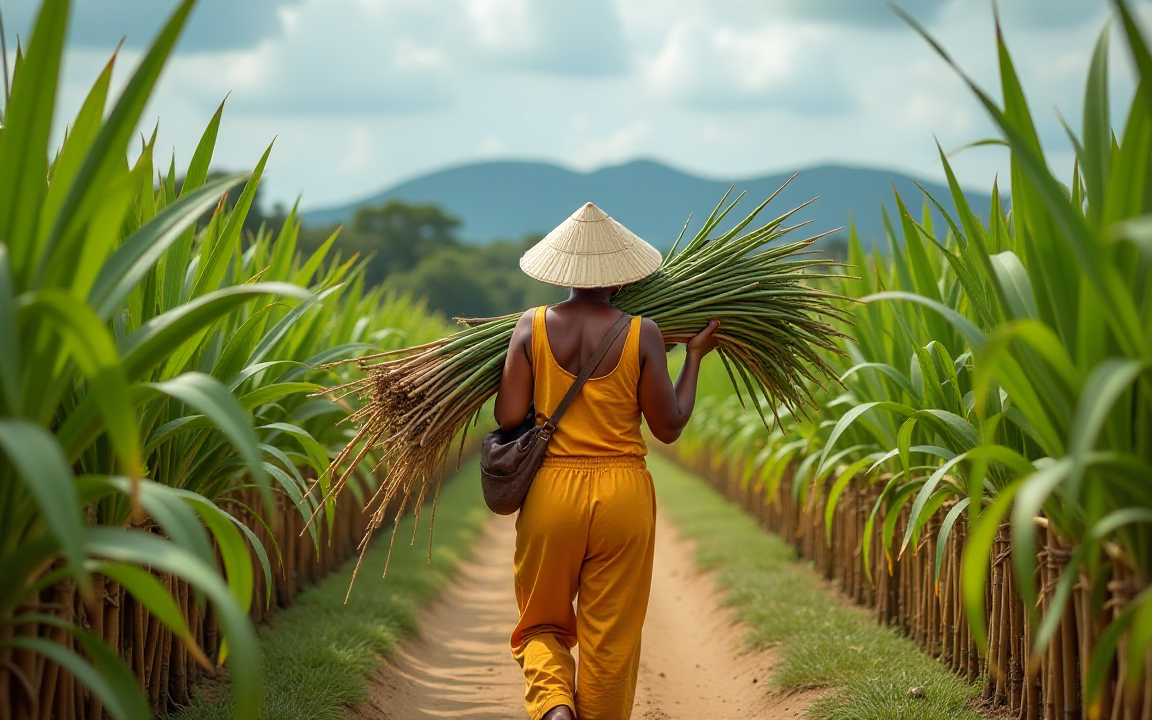
South Africa’s sugar farmers face a “double whammy” from cheap imports and US tariffs, which have been eating into their earnings.
Nkosinathi Msweli’s sugarcane farm in KwaDukuza, a predominantly rural and impoverished region on South Africa’s eastern coast, has for three decades represented a consistent, albeit modest, economic achievement, providing employment for eight full-time staff and 30 seasonal workers, according to a Reuters report.
However, cheap sugar imports had already begun to erode his profits when US President Donald Trump imposed a substantial tariff on South African imports, resulting in what Msweli described as a “double whammy” that now compels the 53-year-old to confront difficult decisions.
“All in all, I will have to cut about 20 workers from this current season,” Msweli was quoted in the report.
The person that is here in the field maybe has 10 lives that he’s supporting.
South Africa sugar industry
Supporting over 300,000 jobs directly and indirectly, South Africa’s sugar industry is valued at approximately 25 billion rand ($1.42 billion).
This sector plays a crucial role in a nation grappling with one of the highest unemployment rates globally.
In South Africa, a nation where agricultural land ownership remains primarily in the hands of a white minority, a direct consequence of the country’s apartheid history, the nearly 26,000 small-scale farmers are predominantly Black, working alongside 1,100 large-scale growers.
However, the sector is increasingly vulnerable to headwinds due to a confluence of market forces and political factors.
South African farmers face stiff competition from inexpensive imports, particularly from nearby Eswatini, which enjoys a competitive edge due to preferential access under a regional customs agreement.
Global production weigh on prices
Adding to their difficulties are the low global sugar prices, a consequence of abundant harvests in key producing nations such as India and Brazil.
The imposition of a 30% tariff by the Trump administration on imports from South Africa is poised to deliver a substantial blow to the nation’s export economy as well.
This significant tariff increase could severely impact various sectors within South Africa that rely heavily on international trade, leading to reduced demand for their products in the American market.
The ripple effects of such a policy could include a decline in export revenues, potential job losses in export-oriented industries, and a broader slowdown in economic growth.
Possible trade agreement
Under the African Growth and Opportunities Act, the US previously allowed South Africa to export 24,000 metric tons of sugar duty-free.
The US market, despite accounting for only 5% of South Africa’s total sugar exports, has been crucial for the South African Cane Growers’ Association.
It provides high prices, which helps to maintain domestic employment.
While the extent of potential job losses is still uncertain, the industry association is pressing the government to finalise a trade agreement with Washington to protect exports to the US.
“If we don’t have good trade relationships with the US, it’s going to be detrimental, not just to our sector, but to many others as well,” Pratish Sharma, a member of the association’s board, was quoted in the Reuters report.
A potential deal, if it materialises, will likely be too late for the current season. Msweli, calculating the impending costs, anticipates significant hardship.
He said:
All this is going to cause starvation and hunger.
The post Job losses loom for South African sugar farmers amid trade challenges appeared first on Invezz

